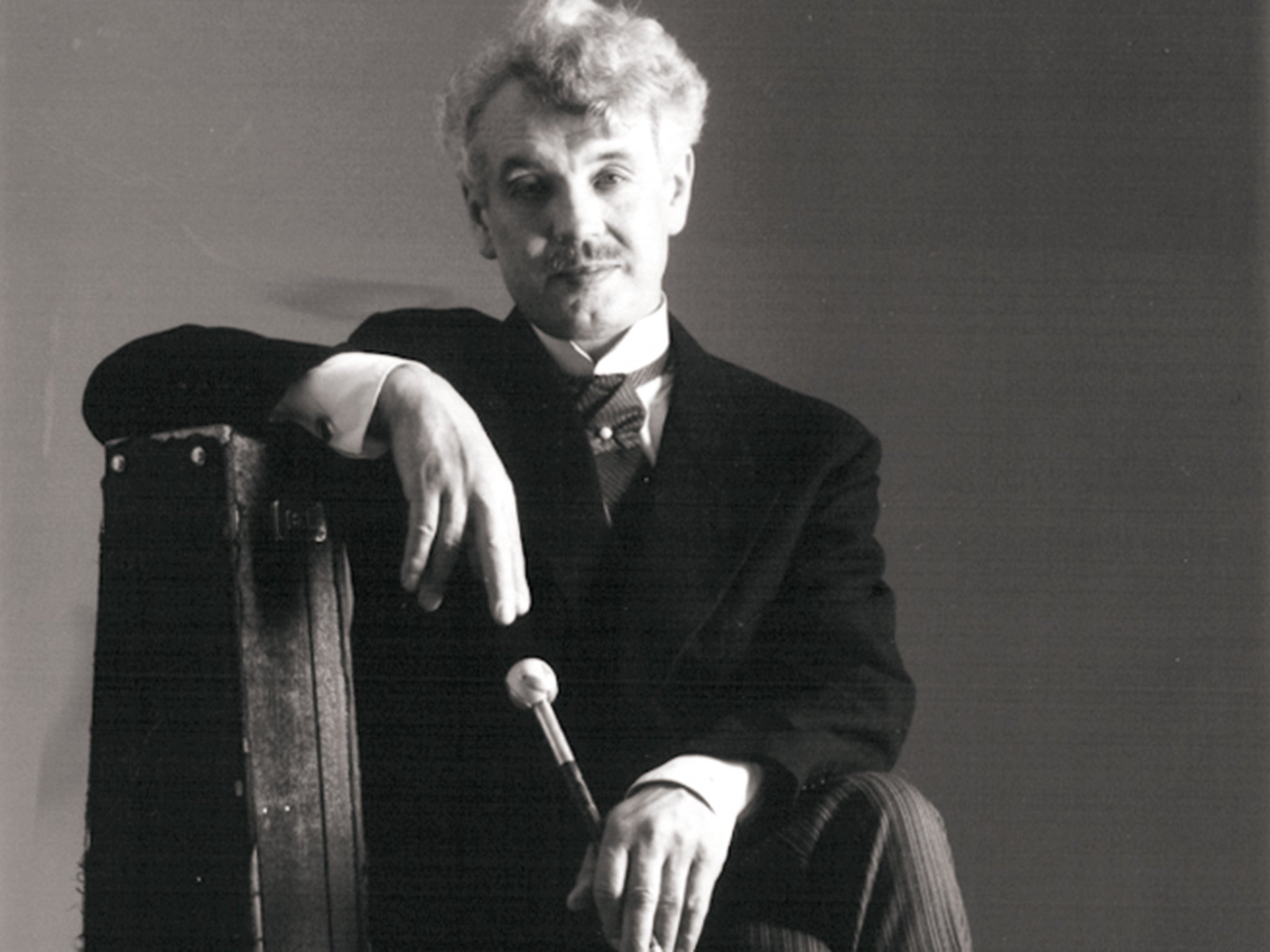Christof Stählin: Singer and writer whose personal songs made him a leading figure in the German scene
His exceptional lyricism lifted him to the level of Liederdichter, or 'song poet'

Germany gave birth to one of Europe’s richest songwriting movements of the 1960s and Christof Stählin was in its vanguard, rising through the ranks at the Burg Waldeck festivals held between 1964 and 1969. Songwriters and song interpreters of international stature participated, including Phil Ochs, Odetta, Franz Josef Degenhardt, Hannes Wader and Hedy West. Stählin performed there each year from 1965 to 1968 but he was very different from the rest – indeed, from anyone else.
The standard expression for a singer-songwriter during the 1960s was Liedermacher, literally “song maker”. In Stählin’s case his exceptional lyricism would lift him to another level, to that of Liederdichter, or “song poet”. The son of Liselotte (née Pfahler) and the theologian and psychoanalyst Rudolf Stählin, he had an approach and attitude different to the Communist-inspired Liedermacher. Stählin’s songs were deeply personal vehicles, finding the universal in the specific. His penmanship was as precise as his writings.
He also sought out others’ songs. He explored the legacy of the Elizabethan lute-song composer Robert Jones (c. 1577-1617) – with Michael Wachsmann he is captured on Bear Family’s Die Burg Waldeck Festivals 1964-1968 10-CD boxed set performing “Away With These Self Loving Lads” and “In Sherwood Lived Robin Hood” – and made two albums of material by the Silesian poet Johann Christian Günther (1695-1723).
His recording debut was the LP Makaber macht lustig [The macabre cheers] in 1968. Over the years he released an impressive body of work examining the German condition, much of it for NOMEN+OMEN, the company he founded in 1976. In a typically maverick step, he switched from guitar to accompanying himself on the vihuela, an Iberian instrument with six courses of doubled strings.
Stählin’s writings are marbled with drolleries. Though he eschewed the overt politicising of many of his peers, he did not flinch from social critique. Where many of his contemporaries used the sabre, he used the foil. In “Deutschland nicht mehr” on 1997’s Auf einem andren Blatt [On a different page], a wry, almost aside-like observation about the girl with “deep black eyes” at the Turkish baker’s speaking in Swabian dialect, re-imagines what it means to be German and leaves the listener to ponder attitudes towards the integration of migrants into mainstream society. Typically, “Deutschland nicht mehr” is a play on words. “It has a double meaning,” he wrote to me. “‘Deutschland nicht mehr’ in the sense of ‘I don’t want anything else, only that.’ And ‘Deutschland nicht mehr’ in the sense of ‘Enough of that. I don’t need that anymore.’”
He was also a much-published novelist and essayist. Publications included Der Dandy und andere [The Dandy and others], a set of monologues and short stories from 1986 illustrated by his artist-wife Dorothee von Harsdorf, and his 2013 children’s book, Das kleine Schaf und der gute Hirte [The little sheep and the good shepherd]. He passed on how to write literate, intelligent songs through the Sago organisation. “To my knowledge I was and am the only one amongst my colleagues who is trying to pass on one’s experience systematically,” he said. The skills may have been teachable but his talents were unreproducible.
One July afternoon in 1998 at Tanz&FolkFest Rudolstadt he purposefully sidled up to me. In that refined, softly-spoken voice of his, he insisted that I see Alim Qasimov that evening. Stählin, already in thrall to his artistry, set in motion a train of life-changing events. It led to my telling David Harrington that the Kronos Quartet should collaborate with the Azerbaijani classical vocalist. It bore fruit with the Kronos Quartet and Alim & Fargana Qasimov doing concerts, and in 2010 releasing the album Music of Central Asia Vol. 8 – Rainbow. In 2001, Stählin told me he had chosen as his Geheimmotto – “secret motto” – some lines from The Muses Gardin for Delights. In 1611 Robert Jones had written, “I am not so arrogant, as to commend mine owne gifts, neither so degenerate, as to beg your toleration.”
Christof Stählin, songwriter, musician, novelist and Kabarettist: born Rothenburg ob der Tauber, Bavaria 18 June 1942; married 1984 Dorothee von Harsdorf (divorced 2000; two sons,); died Hechingen, Baden-Württemberg 9 September 2015.
Join our commenting forum
Join thought-provoking conversations, follow other Independent readers and see their replies
Comments
Bookmark popover
Removed from bookmarks